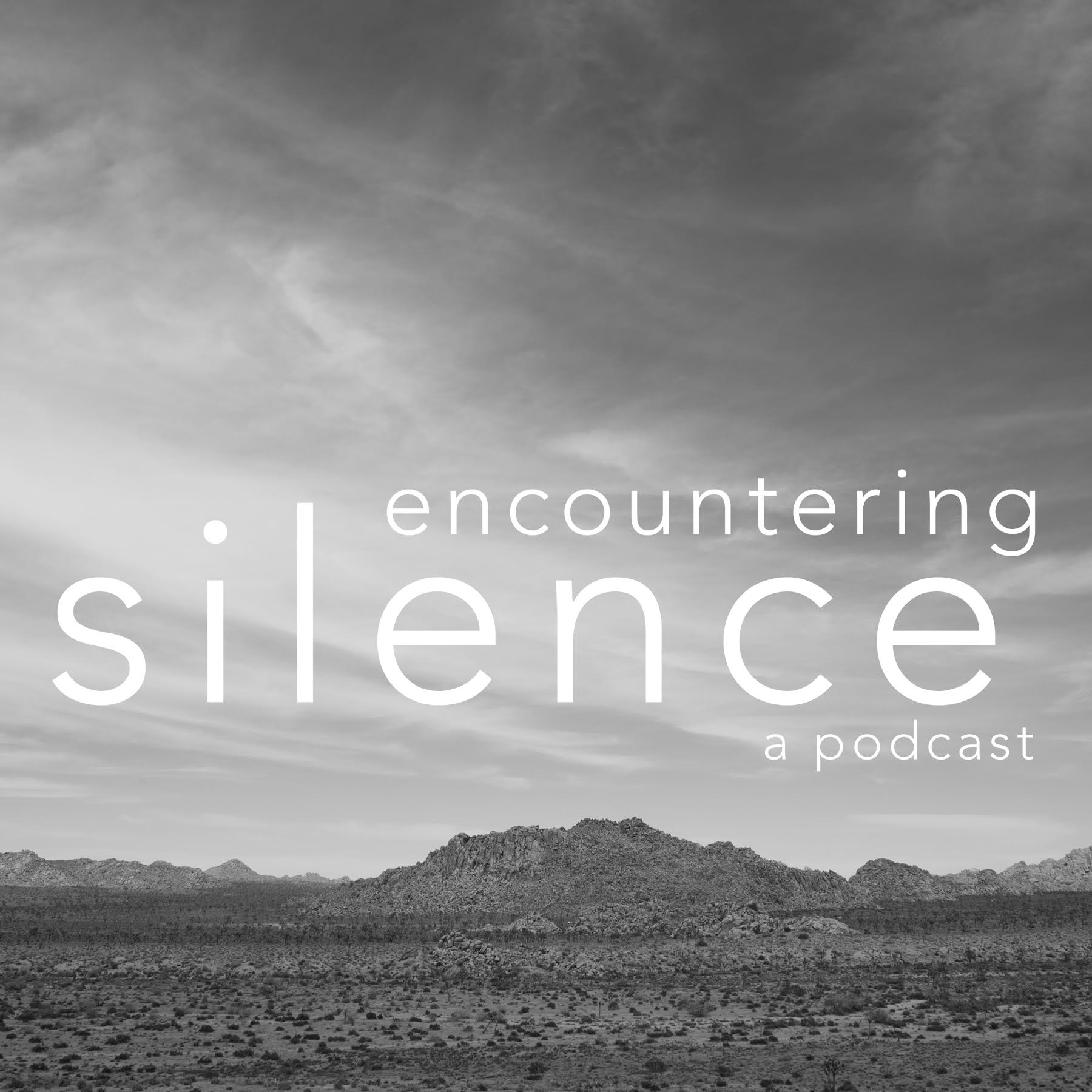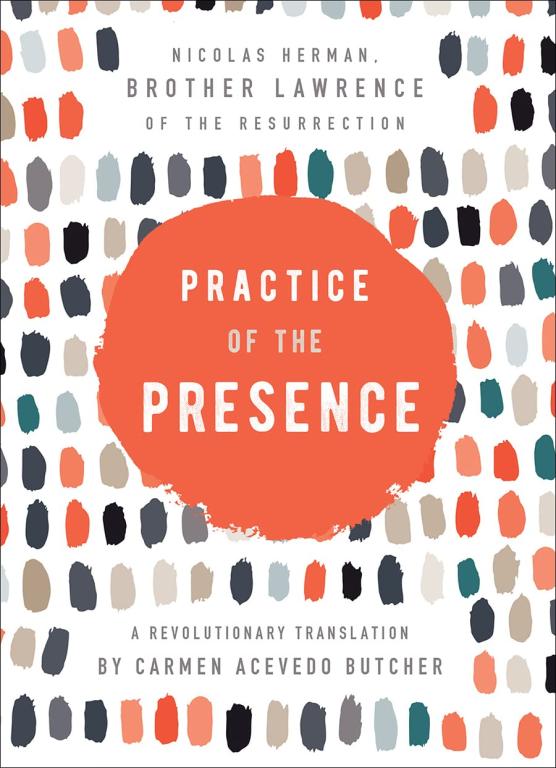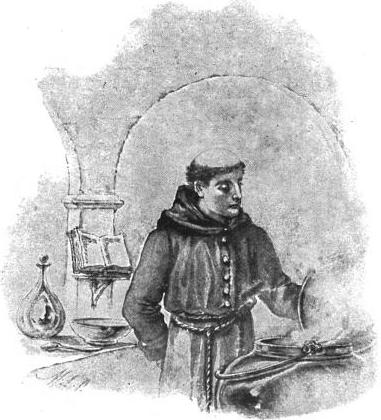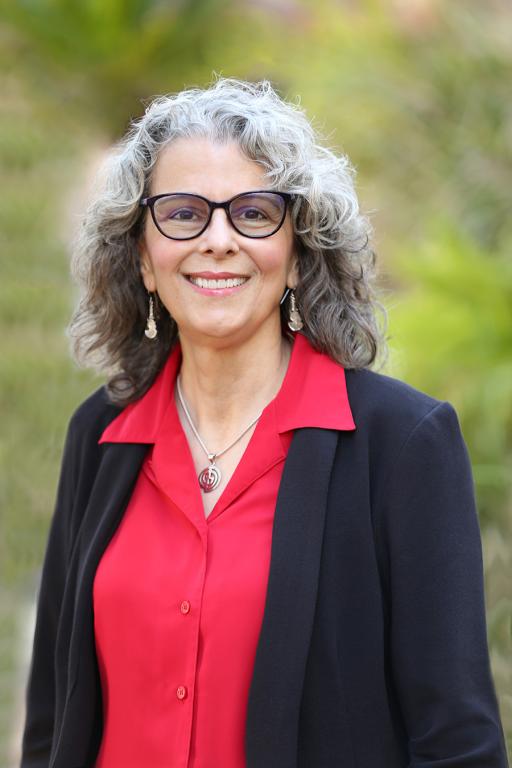Carmen Acevedo Butcher: Encountering Silence in the Presence of God
August 21, 2022

We speak with noted contemplative translator Carmen Acevedo Butcher on the occasion of her latest mystical translation: Brother Lawrence's "Practice of the Presence."
Carmen Acevedo Butcher, Ph.D., is renowned for her luminous translation of The Cloud of Unknowing with the Book of Privy Counsel. Her latest book — a new translation of Brother Lawrence's Practice of the Presence — will be published on Tuesday, August 25, 2022. The Encountering Silence team sat down with her recently and spoke about translation, mystical theology, God and pronouns, and of course — silence.

Recently Carmen wrote a guest post for Carl McColman's Patheos blog. We're reposting it here for our Encountering Silence Community.
“If the little ship of our soul is still rattled and tossed by winds or by storm, let's wake up the God who's resting there.” Brother Lawrence’s epistolary advice to a nun 340 years ago, from Practice of the Presence, recently “set up shop” in the heart of a dear thirtysomething friend, she said.
“If the little ship of our soul is still rattled and tossed by winds or by storm, let's wake up the God who's resting there.” Brother Lawrence’s epistolary advice to a nun 340 years ago, from Practice of the Presence, recently “set up shop” in the heart of a dear thirtysomething friend, she said.
I too am thankful for his timeless, calm wisdom in our ongoing global ‘perfect storm.’ For centuries this spiritual classic has fulfilled and transcended its Carmelite tradition. Beloved by people of all faiths, wisdom traditions, and none whatsoever, its heart beats with a returning—in micro-moments of meditation—to God, Kindness, Love, True Self, or however you conceive of Mystery.
Its author is easy on the heart too. As I translated his work from French into English, a sense of his brokenness, genuine kindness, ordinary life, and suffering humanity emerged. Because the friar developed his prayer practiceinstinctively for his own healing while experiencing profound anxiety, his book rings with equally profound authenticity.
Born Nicolas Herman in 1614 into the Third Estate of peasants, wage laborers, and bourgeoisie, he had no formal education and no advantages. Around 20 he was severely injured in the leg during the Thirty Years’ War. Leaving the military a disabled veteran, he limped in pain the rest of his long life, spending his last two years unable to walk.
Brother Lawrence shared with his good friend the priest Joseph of Beaufort that he’d also suffered terrible psychological pain. During a dark night of the soul from twenty-six to thirty-six: “He often relived in his mind the dangers of his days in military service, the emptiness and corruption of the times,” and meditated on “the disorders of his youth,” causing him “horror.”
His prayer practice first appealed to me because it made visible my earliest contemplative experiences in nature. There something in me yet inchoate kept me company kindly, out among the red-tailed hawks and tall evergreen pines of red-earthed north Georgia, wandering hours alone in search of peace, trying to process childhood trauma.
Every 4am of the first pandemic summer I got up to translate the friar’s work. Seeing the sun in with my new friend, I was drawn to this down-to-earth mystic’s exceptionally calming presence. Grieving with the ever-rising deaths non-stop narrated in global and local news and in conversations with friends who lost family, I was also teaching full-time on Zoom as I translated, trying to help my students who had catastrophic grief, deaths of loved ones, housing insecurities, food precarities, job losses, or were juggling multiple jobs and school, and other stresses.
Our cataclysmic times echo with Brother Lawrence’s century of plague, authoritarianism, inequities, wars, climate crisis, and famine. After leaving the military, the friar knew failure as a hermit, then as a Paris footman, where he says he felt like “a clumsy oaf who broke everything.”

He decided to enter the monastery in Paris in the summer of 1640 as a lay brother. Taking the name Brother Lawrence of the Resurrection, he was assigned to the kitchen. He had “the strongest natural aversion” to scullery duties, but they lasted forty years. Gradually he learned to do even these “with the greatest love possible.” When standing became too much, he was reassigned to the monastery sandal shop, repairing his 100 or so brothers’ sandals.
Over time Brother Lawrence learned to pray constantly. He called it “the practice of the presence.” An “easy” and “strengthening” form of micro-prayer done on the fly, this “brief lifting up of the heart” is a simple Love-homecoming, done at any time, as often as a person can, he says.
The friar did this meditative returning-to-Love even when busiest in the kitchen flipping omelettes. Gradually, his presence prayer grew the spiritual muscles of his calmness to experience deep healing. He lived in and from an inner peace sustaining him through his last forty years, up to his death on February 12, 1691.
Contemplative seekers today find the friar’s practice of the presence helpful because it’s portable, easy-to-do, healing, and cultivates our self-compassion and community. It’s evergreen.
A moment of practicing the presence might begin with anything, an injury, a joy, a task, a cup of tea or coffee, morning sun through a window, a nagging worry, or any uncontrollable aspect of our human life. There we turn to Love, check in, then come back to the quotidian—open email, wash a dish, drive to work. Repeating this gentle returning develops our self-kindness, and empowers anyone to make a compassionate difference in our world.
Since being-good-at-it is not the point of the friar’s practice, its unconditional-love foundation makes it especially healthy in our capitalistically transactional world. He says Love always called him back when he forgot, adding: “[W]e must not get discouraged when we forget it, for any good habit is only formed with difficulty, but when it is formed, we will find contentment in all we do.” This meditative habit directly connects a person with divinity, as he reminds: “If the will can in any way understand God, it can only be through love.”
His centering on God as love is why I call him the friar d’amour.
As Joseph shares, the friar’s practice of the presence made him “gentle” during a harsh time very like our own: “Brother Lawrence was a warm, welcoming person. He gave others confidence. . . . [Y]ou felt you could tell him anything. You knew you’d found a friend.”
Friendship and peace are what this book offers. My translation of Practice of the Presence gives a wide range of readers access for the first time to the complete Brother Lawrence, who models developing calmness like a muscle.
The kindest teacher, Brother Lawrence reassures all: “In the middle of your tasks you can comfort yourself with Love as often as you can. . . . Everyone is capable of these familiar conversations with God.”
“Let’s begin.”

Carmen Acevedo Butcher, Ph.D., is an author, teacher, poet, and an award-winning translator of spiritual texts. Her dynamic work has garnered interest from various media, including the BBC and NPR’s Morning Edition. A Carnegie Foundation Professor of the Year and Fulbright Senior Lecturer, Acevedo Butcher’s work in translation has made accessible works by such writers as The Cloud's Anonymous, Hildegard of Bingen, and Julian of Norwich. Her revolutionary translation of Brother Lawrence’s Practice of the Presence releases August 2022 from Broadleaf Books. She currently teaches full-time at the University of California, Berkeley, in the College Writing Programs.